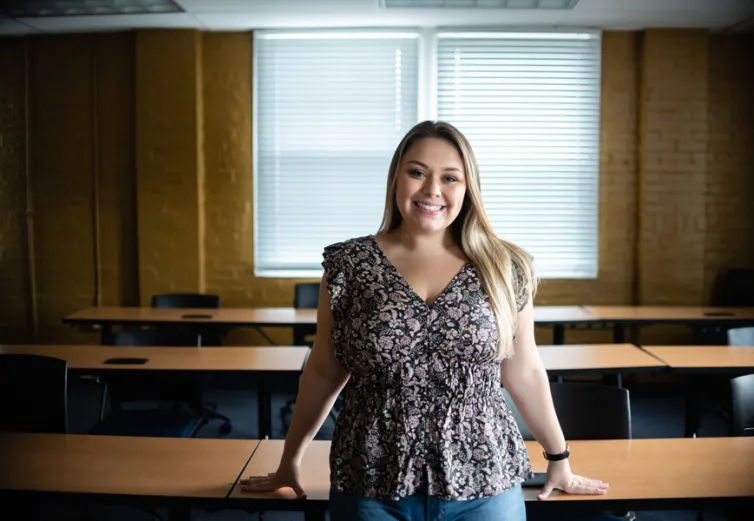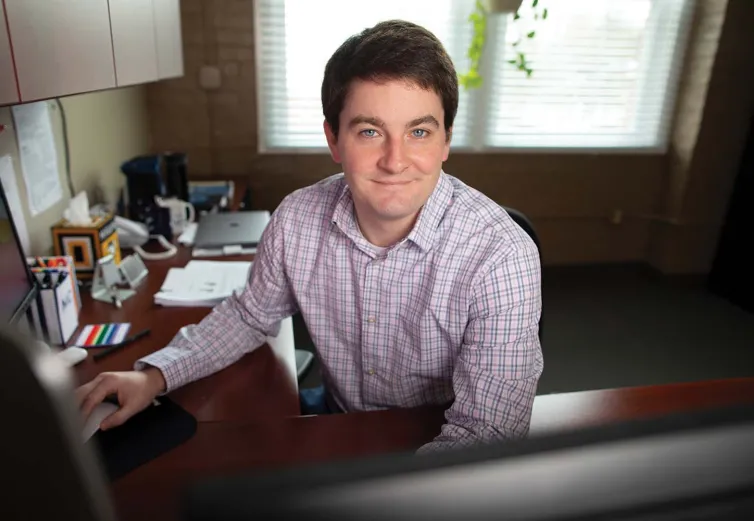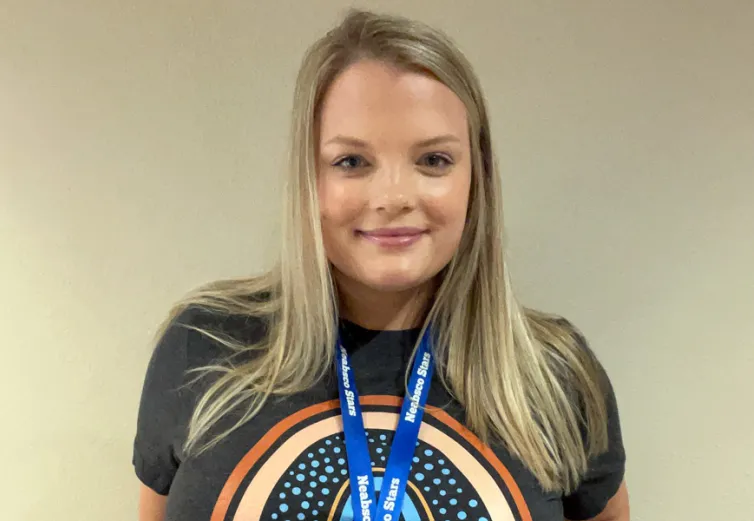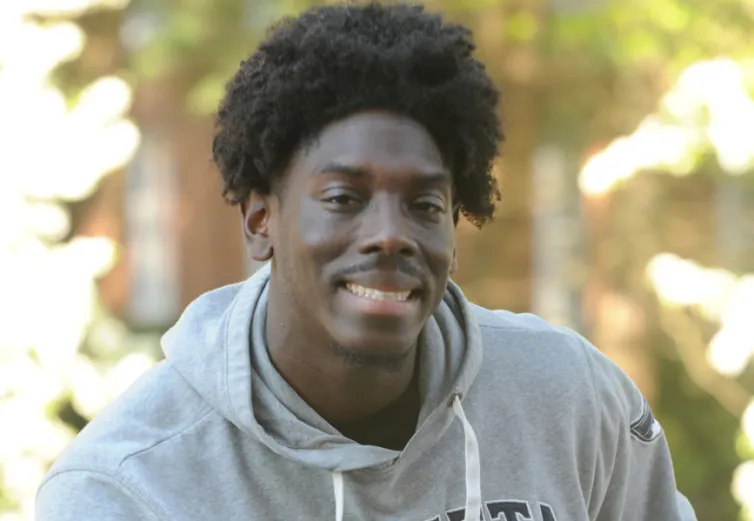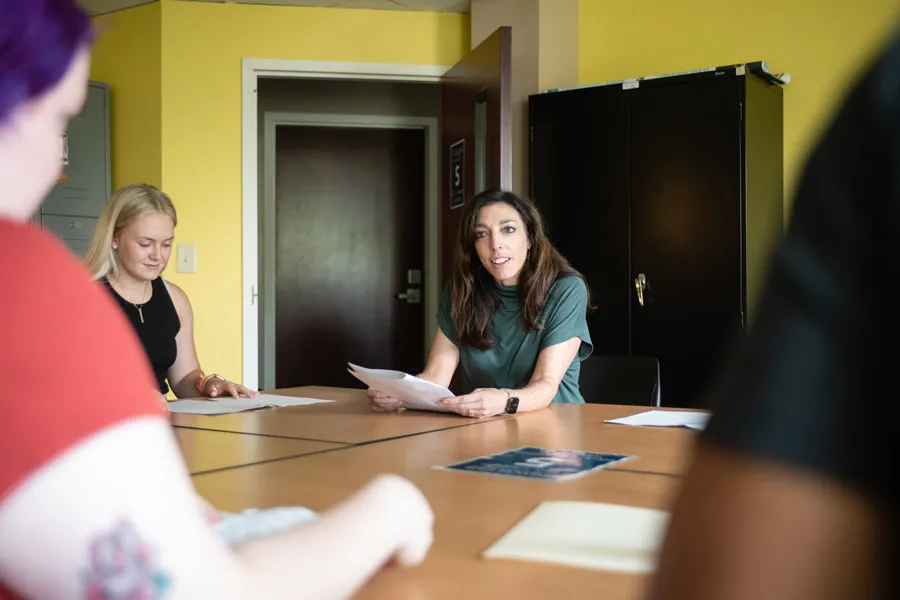
Dr. Alicia Doerflinger
Degree: Ph.D.-Psychobiology, Purdue University (2005); MS-Psychobiology, Purdue University (2003); BA-Psychology, Niagara University (1999)
Title: Assistant Professor
It’s fair to say that Dr. Ali Doerflinger is a foodie — but not in the way you may think.
As a behavioral neuroscientist, she conducts intensive research into the physiological and behavioral mechanisms underlying food intake. She is particularly interested in the development of feeding behaviors, and how children learn to seek out food, develop food preferences and eating habits that set the stage for body weight regulation throughout the lifespan.
The examples that I have encountered during my research are really useful to show there is a strong interaction between nature and nurture.
- Dr. Alicia Doerflinger, Assistant Professor
In early 2021, the Associate Professor of Psychology and Neuroscience at Marietta College started new research in this area that she hopes to follow up on in the future with undergraduate and graduate students. The project was in collaboration with GoPacks, an educational program housed in Marietta City School District. The program is geared towards school-aged kids and their families; it provides them with supplemental food for weekends and school breaks, and also education and links to community resources.
“I was on sabbatical during the spring (2021) semester, and I wanted to look at the effects of farmers market vouchers on 1) getting those families to the market and 2) increasing their fresh fruit and vegetable intake,” Dr. Doerflinger says. “I did not have the turnout for the study that I had hoped, but we did a great pilot run and now I’m looking at ways to conduct the research again so I can complete this study.”
However, the research did enroll 25 families who received food vouchers they could use at the Marietta Farmer’s Market each Saturday for four weeks. The project also opened up new doors for collaboration with Ohio State University Extension, Washington County.
“Many of the participants believe that fresh food is more expensive than processed foods, so families don’t even explore the opportunity of purchasing and making fresh foods,” she says. “I have also learned that preparing fresh foods is not second nature to everyone. What we hope to do through research like this is have a positive impact on the families on the food they buy, prepare and eat.”
One observation that Dr. Doerflinger did make, though, was how the families sought out meat that was available at the farmer’s market.
“In early June, there was not a large selection of produce available. The feedback I received from the families was they found real value in getting their meat at the farmer’s market. Also, the vouchers helped them stretch their budgets over the summer.”
The vouchers were designed to be a supplement and not the only source of funds to purchase food at the farmer’s market. The vouchers were made possible by a $500 gift from the Marietta Kiwanis Club and research funds through the College. Dr. Doerflinger also received logistical support for data collection at the Farmers Market from Ohio State University Extension, Washington County. “Marcus McCartney was a huge help in organizing the vendors to take the vouchers; I would not have gotten buy-in from the vendors without him.”
Dr. Doerflinger has conducted previous research on commonly used food additives such as artificial sweeteners, caloric sweeteners, and caffeine on food intake and body weight regulation in children and animal models (rats and mice). She also teaches a Science of Eating class, where she can incorporate her research and educational background. Dr. Doerflinger has a Ph.D. and M.S. in Behavioral Neuroscience from Purdue University.
“In class, I am able to speak with the students about the role genes play, but also how a person’s environment impacts their eating habits,” Dr. Doerflinger says. “The examples that I have encountered during my research are really useful to show there is a strong interaction between nature and nurture.”
See How Our Students and Alumni are Blazing New Trails
I, Pioneer
